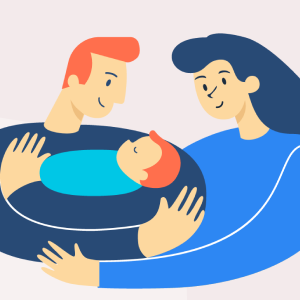Churg-Strauss syndrome
Fakta Disemak oleh Hello Doktor Medical Panel
Churg-Strauss syndrome is a disorder marked by blood vessel inflammation. This inflammation can restrict blood flow to vital organs and tissues, sometimes permanently damaging them. This condition is also known as eosinophilic granulomatosis with polyangiitis.
Asthma is the most common sign of Churg-Strauss syndrome. The disorder can also cause a variety of other problems, such as hay fever, rash, gastrointestinal bleeding, and pain and numbness in your hands and feet.
How common is Churg-Strauss syndrome?
Churg-Strauss syndrome is rare. There are only 2 to 5 new cases per year per 1 million people. Please discuss with your doctor for further information.
Symptoms
What are the symptoms of Churg-Strauss syndrome?
Unlike other types of vasculitis, many people with this condition have asthma or a higher-than-normal number of a type of blood cell called “eosinophils.’
Because many different organs may be involved, many different symptoms are possible. People who have the disease may feel ill or also have:
If it affects the nerves, you may feel a burning or prickling sensation in the limbs and other parts of the body, followed by loss of sensation or loss of strength. This symptom id called “paresthesia.”
There may be some symptoms not listed above. If you have any concerns about a symptom, please consult your doctor.
When should I see my doctor?
If you have any signs or symptoms listed above or have any questions, please consult with your doctor. Everyone’s body acts differently. It is always best to discuss with your doctor what is best for your situation.
Causes
What causes Churg-Strauss syndrome?
Doctors don’t know. Some experts think that allergies play a role in why some people get this disease. But many people with allergies never get it.
Risk factors
What increases my risk for Churg-Strauss syndrome?
There are many risk factors for Churg-Strauss syndrome, such as:
- On average, people with Churg-Strauss syndrome are diagnosed between 30 and 50 years of age.
- History of asthma or nasal problems. Most people diagnosed with Churg-Strauss syndrome have a history of nasal allergies, chronic sinusitis or asthma, which is often severe or hard to control.
Diagnosis & treatment
The information provided is not a substitute for any medical advice. ALWAYS consult with your doctor for more information.
How is Churg-Strauss syndrome diagnosed?
There is no single test for it. Your doctor will look at your medical history and give you a physical exam. She will ask you about your symptoms, especially asthma.
You may also get:
- Blood tests
- X-rays
- A urine test (urinalysis)
If your doctor thinks you have this condition, she may take a biopsy (a small tissue sample) of an affected area to see if the blood vessels in the area are inflamed. For instance, your biopsy might come from an area of your skin that has a suspicious rash.
In some cases, your doctor may recommend doing a kidney or lung biopsy.
How is Churg-Strauss syndrome treated?
If you have this disease, you will need to take drugs that target your immune system. The goal is to limit or prevent damage to healthy tissues.
Corticosteroids, usually called “steroids,’ are the most common drugs doctors prescribe for this condition. Most people with it take prednisone (by mouth) and prednisolone (by IV). People whose nervous system, heart, kidneys, or intestines are not affected do very well with prednisone alone.
In some cases, doctors also prescribe chemotherapy medications — such as azathioprine (Imuran), cyclophosphamide (Cytoxan), or methotrexate. Chemo drugs are powerful medicines used to treat cancer. Churg-Strauss syndrome is not cancer, so you would probably take a lower dose than someone who has cancer. While you take these drugs, you will likely get blood tests often to check for any side effects.
Once the disease is under control, doctors slowly lower the dose of prednisone and eventually stop it entirely, if possible. If you also take chemotherapy drugs, your doctor may ease you off of it after your condition is under control. This often takes at least 6 months or up to several years.
Lifestyle changes & home remedies
What are some lifestyle changes or home remedies that can help me manage Churg-Strauss syndrome?
The following lifestyles and home remedies might help you cope with Churg-Strauss syndrome:
- Protect your bones. Ask your doctor how much vitamin D and calcium you need in your diet, and discuss whether you need to take any supplements.
- Exercise can help you maintain a healthy weight, which is important when you’re taking corticosteroid medications that can cause weight gain. Strength training and weight-bearing exercises such as walking and jogging also help improve bone health.
- Stop smoking. This is one of the most significant things you can do for your overall health. By itself, smoking causes serious health problems. It also makes problems you already have worse and can increase the side effects of medications you’re taking.
- Adopt a healthy diet. Steroids can cause high blood sugar levels and, eventually, type 2 diabetes. It helps to include in your diet foods that help keep blood sugar stable, such as fruits, vegetables and whole grains.
- Keep doctor appointments. During therapy for Churg-Strauss syndrome, your doctor will monitor you closely for side effects. This will likely include regular bone scans, eye exams, and tests for blood pressure, blood sugar and cholesterol levels. If caught in time, it’s possible to reverse many of the side effects resulting from steroid use.He or she will also look for signs of Churg-Strauss syndrome affecting new organs (relapse).
If you have any questions, please consult with your doctor to better understand the best solution for you.
Hello Health Group does not provide medical advice, diagnosis or treatment.
Penafian
Hello Health Group tidak menawarkan nasihat perubatan, diagnosis atau rawatan.
Fakta Disemak oleh
Hello Doktor Medical Panel





















Komen
Kongsi komen anda
Ayuh jadi yang pertama untuk memberi komen!
Sertai Kami atau Log Masuk untuk menghantar komen